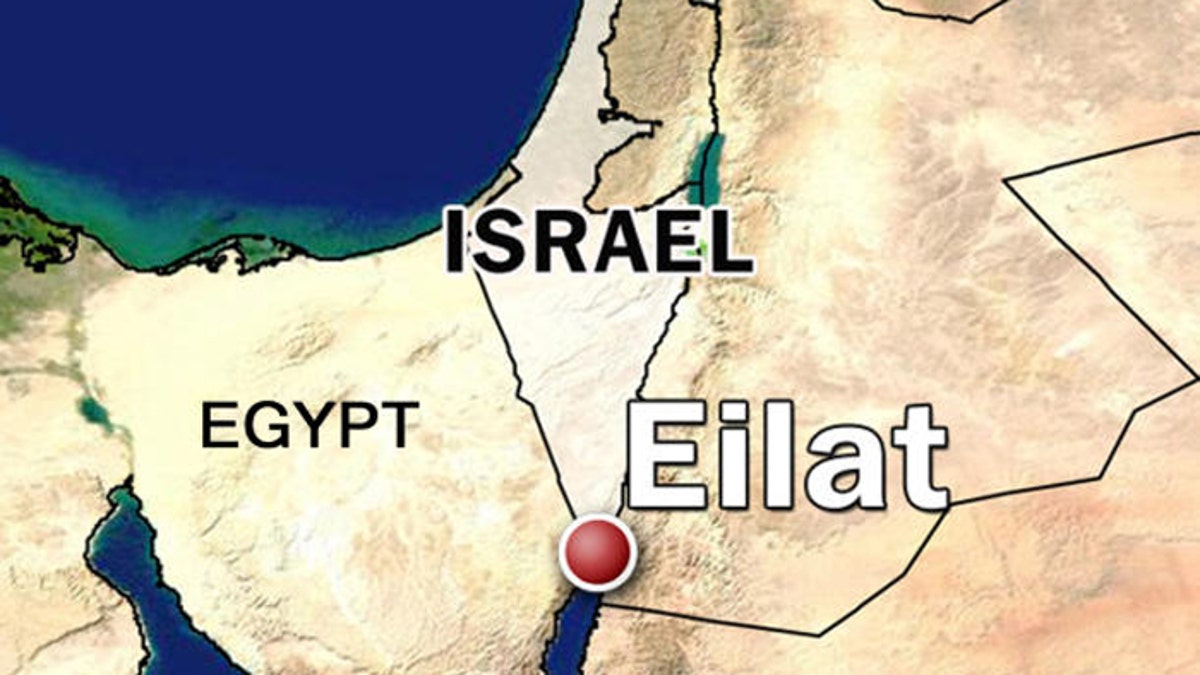
The attack in Israel's southernmost city could prompt Israeli action in the lawless Sinai Peninsula, say experts. (AP)
A missile attack on Israel’s popular Red Sea resort of Eilat on August 13 prompted deployment of the military’s vaunted Iron Dome defense – and has raised new fears Egypt's army can't contain the violence in the increasingly lawless Sinai Peninsula.
Although no one was killed and one of the three missiles was intercepted, the attack is viewed as a significant escalation in the activity of Islamist terror groups in Sinai, many of whom are affiliated with Al Qaeda. Under the recently deposed Egyptian President Mohammed Morsi, security in Sinai deteriorated, allowing groups such as Ansar Bayt al-Maqdis – which claimed responsibility for the Eilat attack – to flourish. They have been targeting the provisional Egyptian government, but now could be taking on Israel, too.
[pullquote]
“This was a response to the latest crimes by the Jews, who used a drone to attack and kill four of our fighters in Sinai,” read a statement in Arabic from Ansar Bayt al-Maqdis. “The attack sowed fear among the criminal Jews, who were forced into underground bomb shelters.”
The jihadist group’s claim that an Israeli drone strike was responsible for the death of four of their fighters drew no comment from Israel. Ahmed Mohammad Ali, a spokesman for Egypt’s military, which has been trying to root out terror groups in the vast peninsula, denied that Israeli drones had been used for attacks in the area, which lies at Israel’s southern border and across the Suez Canal from the rest of Egypt. But he noted Egypt’s army has been active in the area.
“Since Saturday night, 25 terrorists have been killed or injured by the Egyptian Army, and ammunition supply depots had been destroyed,” Ali said.
Israel and the temporary, military-backed government that took control when Morsi was arrested last month are both working to neutralize terrorists in the peninsula.
“We have very good cooperation with Egypt on a range of security issues,” Ilana Stern, spokesperson for Israel’s Foreign Ministry, told FoxNews.com. “They have shown what they think about the situation in Sinai.”
Egyptian forces also have been clamping down on the activities of Hamas in the Gaza Strip that borders Sinai, and have publicly accused Hamas of supporting the desert-based terrorists by sending hundreds of fighters through smuggling tunnels to fight in Sinai. But now that missiles launched from the Sinai have landed in Israel’s southernmost city, regional observers warn that the Jewish state is not likely to stand pat. The feeling is that if the Egyptian military doesn’t quickly regain control and make the border region safe, Israel might be forced to take matters into its own hands.
The Eilat terror attack comes as a majority of Israelis remain opposed to the release of more than 100 Palestinian terrorists from Israeli jails as part of U.S. Secretary of State John Kerry’s attempts to revive the Middle East peace process. The first releases – due on Tuesday evening – will go ahead unchecked after an Israeli High Court ruled earlier in the day against a petition from the families of terror victims urging the process to be deemed illegal.
So far, the attack on Eilat seems to have had more of an impact on defense officials than tourists and residents.
“I’m surprised by the complaints as all residents of Eilat are well prepared and the city is organized and ready,” Eilat Mayor Yitzhak Halevi told Israel’s Channel 10 television. “There have been very few [hotel] cancellations.”
“We’re here on holiday until the weekend,” said one French tourist, “and nothing’s going to make us leave in a hurry.”
